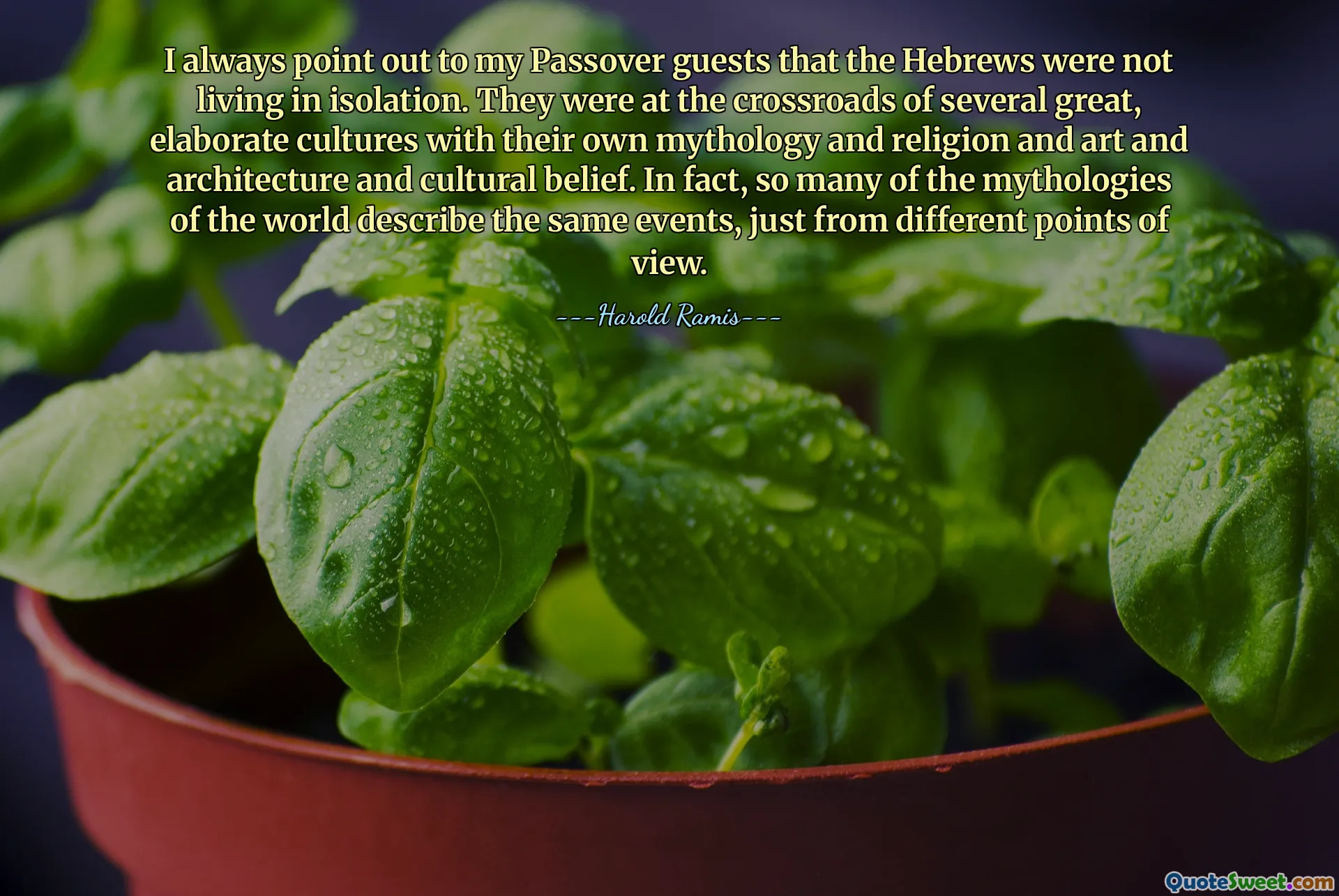
I always point out to my Passover guests that the Hebrews were not living in isolation. They were at the crossroads of several great, elaborate cultures with their own mythology and religion and art and architecture and cultural belief. In fact, so many of the mythologies of the world describe the same events, just from different points of view.
This quote highlights the interconnectedness of human cultures and the universality of mythological themes. It prompts us to consider how historical peoples, such as the Hebrews, were not isolated entities but participants in a broader cultural exchange. Recognizing the Hebrew experience as part of a larger tapestry of global mythology encourages a more inclusive understanding of history and culture. The mention of mythologies sharing similar stories from different perspectives emphasizes that human storytelling often explores fundamental truths—creation, chaos, morality, divine intervention—that resonate across civilizations. This interconnectedness can foster empathy and cultural appreciation, reminding us that despite surface differences, many cultural narratives share common motifs, symbolizing shared human concerns and aspirations. Understanding these cross-cultural parallels can deconstruct stereotypes and foster dialogue, as it reveals that diverse societies have grappled with similar existential questions yet expressed them uniquely. The quote also invites reflection on how cultural cross-fertilization has enriched art, religion, and societal beliefs throughout history. It challenges modern individuals to see history not as isolated incidents but as part of a continuous flow of ideas and stories that shape human identity collectively. Recognizing this interconnectedness fosters a deeper appreciation for cultural diversity and underscores the importance of dialogue among different traditions, as all share rooted human experiences expressed through their unique mythological frameworks.











